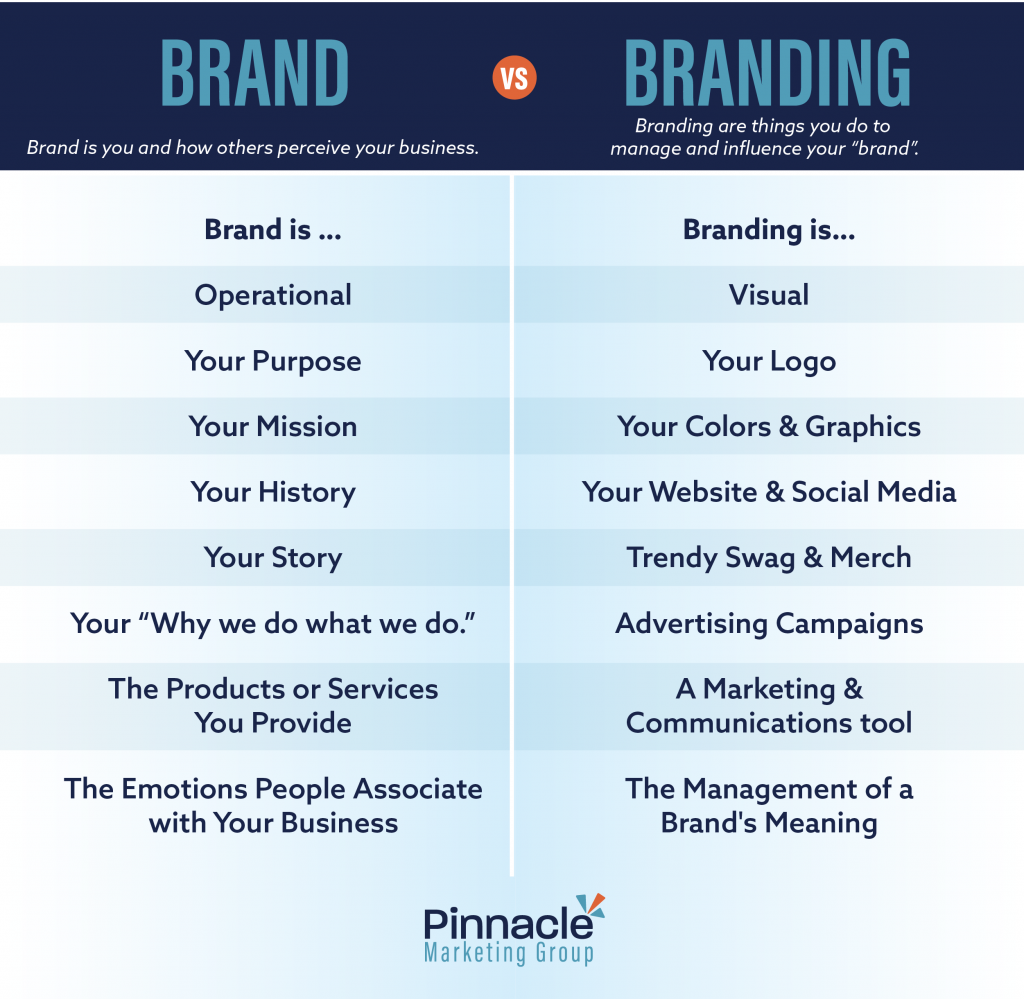Why Durable Branding Is Necessary for Market Management
A well-defined brand name identity not only establishes a business apart from its rivals yet also grows depend on and emotional links with consumers. What are the specific approaches that can raise a brand to this esteemed condition?
Comprehending Brand Identification
Regularly identifying the relevance of brand name identification is important for any kind of company desiring attain market leadership. Brand name identification encompasses the visual components, messaging, and overall understanding that identify a company from its competitors. It offers as a foundation for how customers engage and regard with a brand, playing an important function in forming their experiences and expectations.
A well-defined brand name identification communicates the core values and objective of a company, developing a psychological connection with its target audience. Aspects such as logo designs, color design, typography, and tone of voice need to straighten cohesively to share a consistent message across all systems. This uniformity reinforces brand recognition and cultivates customer loyalty.
Organizations that prioritize a solid brand name identity can effectively differentiate themselves, construct a favorable credibility, and cultivate a dedicated consumer base. Eventually, a robust brand name identity is important for browsing affordable landscapes and sustaining lasting success.
Building Customer Trust Fund
A solid brand name identification lays the groundwork for building client count on, a key part in accomplishing market management. Depend on is not merely a psychological reaction; it is a tactical property that can substantially influence acquiring decisions and brand name loyalty. Firms that cultivate openness, reliability, and uniformity in their messaging and actions cultivate a complacency amongst consumers.
To construct this count on, brand names should supply on their guarantees. This suggests guaranteeing that item quality fulfills customer assumptions and that service experiences are favorable and responsive. Consistent interaction enhances reliability; when customers understand what to anticipate and that their concerns will be attended to, their self-confidence in the brand name deepens.
Social proof also plays a critical role in establishing count on. Favorable testimonials, endorsements, and endorsements from qualified sources enhance a brand's credibility and can persuade prospective clients. Engaging with clients with social systems and resolving their problems openly shows liability and dedication.
Distinction in Open Markets
In today's congested market, differentiation is vital for brand names looking for to stick out and catch consumer interest. With many choices offered, consumers are frequently overwhelmed, making it necessary for brand names to establish a distinct identity that resonates with their target audience. This differentiation can manifest through various components, consisting of item features, pricing approaches, customer support, and brand messaging.
Effective distinction includes not only identifying what makes a brand name special however also interacting these distinctions plainly and constantly. Brand names have to verbalize their value proposal in a manner that addresses details customer demands and choices. A business may focus on sustainability, ingenious technology, or personalized consumer experiences to carve out a particular niche in a competitive landscape.
In addition, brands need to constantly analyze their competitive setting to adapt and fine-tune their distinction techniques. This aggressive approach makes sure that they continue to be appropriate and enticing to customers as market characteristics develop. Inevitably, robust branding that highlights distinction not just fosters brand commitment but likewise places a firm as a leader in its industry, leading the means for sustained development and market dominance.
Psychological Links With Consumers
Psychological links work as a powerful catalyst in building lasting relationships between consumers and brand names. When consumers reverberate with a brand name on a psychological level, it fosters loyalty that goes beyond plain transactional communications. Brand names that effectively evoke emotions-- whether through storytelling, shared worths, or genuine involvement-- develop a feeling of belonging for their consumers.
These psychological connections can dramatically influence purchasing decisions, as customers are often driven by sensations rather than reasoning. A brand name that straightens with clients' goals or addresses their pain factors can grow a deep-rooted loyalty that results in repeat service and positive word-of-mouth references.
In addition, emotional branding allows firms to distinguish themselves in crowded markets. By touching right into the sentiments of their target market, brand names can carve out an unique identification that resonates deeply, making them memorable and preferred over rivals.
In an age where consumers are bombarded with options, a strong psychological connection can be the deciding variable in brand name preference. Hence, prioritizing psychological interaction is not merely a marketing technique; it is a strategic crucial for brands looking hop over to these guys for to establish purposeful relationships and boost customer retention.
Long-Term Business Success
Lasting business development rests on the capability to grow robust branding methods that resonate with customers over time. A strong brand not just differentiates a company from its competitors but also fosters commitment and trust amongst clients. This lasting connection is necessary for ensuring repeat company, which substantially adds to profits stability and development.
In a progressively affordable industry, brands that interact a constant and clear message are most likely to flourish. This consistency strengthens brand name identification, making it easier for consumers to recall and choose the brand over others. Robust Branding. Consequently, a reputable brand name can adjust to market adjustments without shedding its core significance, enabling technology without estranging loyal customers
Moreover, robust branding creates a system for consumer involvement, wherein organizations can collect responses and adjust their offerings as necessary. This iterative process not only enhances customer complete satisfaction however likewise develops a community around the brand, cultivating a feeling of belonging.
Final Thought

Organizations that focus on a strong brand name identity can successfully differentiate themselves, construct a positive track record, and cultivate a devoted consumer base.A strong brand name identification lays the groundwork for constructing customer depend on, a vital component in accomplishing market leadership. A strong brand name not just separates a firm from its competitors however additionally fosters loyalty and depend on amongst customers. As a result, a reputable brand name can adjust to market changes without losing its core significance, allowing for development without estranging dedicated customers.
